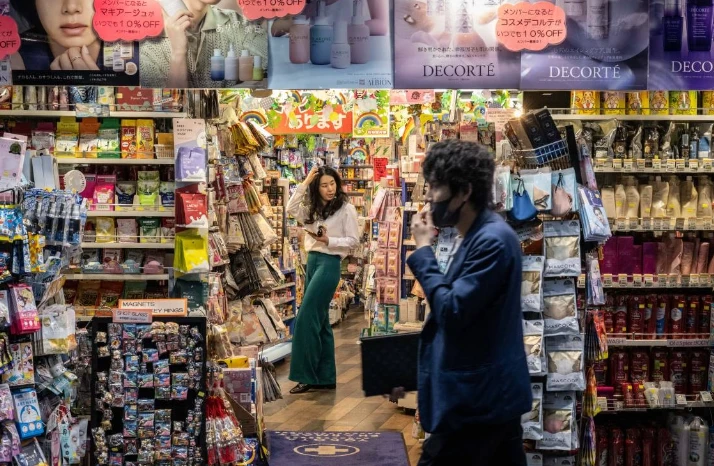Japan store pulls 'lazy dad' kid clothes after backlash

Stay tuned with 24 News HD Android App

A line of kids' clothes featuring slogans about lazy, uninvolved fathers have been pulled from shelves in Japan after the designs sparked an online backlash.
The items sold by the chain Birthday included a T-shirt saying "Daddy's always sleeping" and baby socks that declared "Daddy doesn't take care of me at all".
Some commentators called them an affront to hard-working fathers, while others said they highlighted the country's childcare gender gap that weighs heavily on women.
"We want to deeply apologise for the offensive phrases," the brand said on social media platform X on Tuesday, adding that the products would no longer be sold.
The announcement fuelled a heated debate over the division of domestic labour, with some saying the levity had crossed the line.
"You work your butt off all day, only to find your own kid is wearing clothes at home saying all you ever do is sleep, with your wife laughing at the sight of it... How is this supposed to make you happy?" one X user wrote.
"This is discrimination against fathers," another posted.
Others saw the tongue-in-cheek clothing, which also included a headband saying "Daddy always comes home late", were an accurate satire of inequality in Japan.
Women in Japan spend 5.5 times longer than men doing unpaid work from chores to parenting, the highest gap among OECD countries, a 2020 government white paper said.
"How about the fact that husbands lie around all day while moms are busy non-stop, even on weekends -- isn't that discrimination against women?" one user commented on Birthday's apology post on Instagram.
A "men at work, women at home" mentality lingers in Japan, with women leaders still a rarity, although gradual change is afoot.
The percentage of eligible male workers taking parental leave hit a record 30 percent last fiscal year, jumping from the previous year's 17 percent, according to figures released Wednesday.
The government is seeking to increase the rate to 50 percent by 2025.
